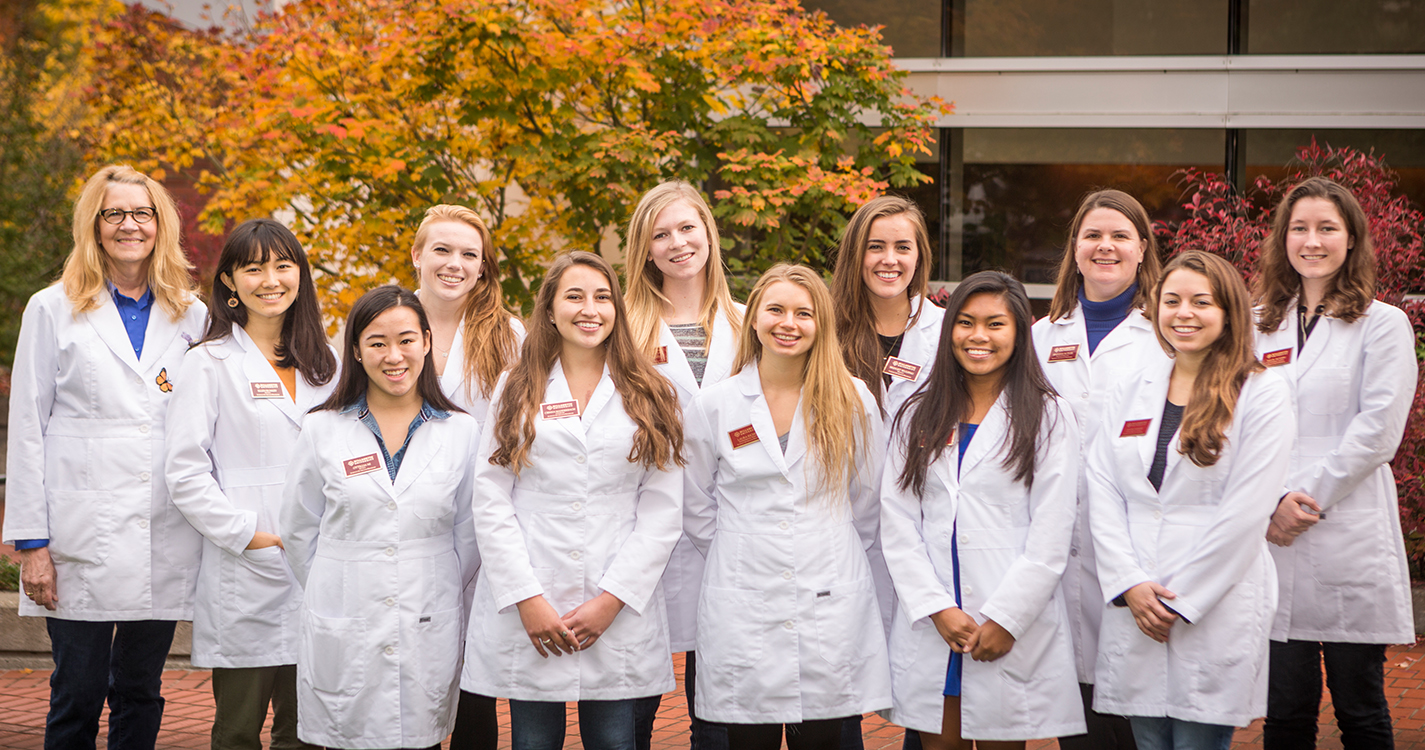When Maura Forbush ’17 presented small clumps of fur, claws and other undigested matter from owls to Highland Elementary students last year, she thought they’d be disgusted.
Instead, the curious fifth-graders requested a magnifying glass to further inspect the owl pellets. Forbush, a biology major, says such excitement about science is exactly what the Willamette Science Outreach Program (WSOP) aims to accomplish.
Funded by former Willamette trustee William Webber, WSOP provides eight female science majors per year with a paid scholarship that mixes teaching, peer mentorship and work within the community. Scholars like Forbush spend half the year developing lesson plans and activities to teach three one-hour classes at local elementary schools. The remaining months, they teach or support other WSOP scholars in the classroom.
Lessons are based on biology, chemistry, environmental science and physics. For chemistry, students have watched balloons shrink in a bucket of nitrogen to understand different states of matter. For physics, they’ve constructed straw-and-tape structures to apply the engineering skills used for building a bridge.
Program Coordinator Dolores Mlynarczyk says WSOP was developed to provide girls with female role models and motivate them to become interested in a science career.
She says, “Women are underrepresented in STEM (Science, Technology, Engineering and Math) jobs and undergraduate degrees, despite making up nearly half of the college-educated workforce.”
Now celebrating its 20th year, the program has left a significant mark on Salem elementary students. In written feedback, one McKinley Elementary student says WSOP has made science “fun and exciting.” After college, she wants to be an engineer like her grandfather.
“The Webber program helped make science understandable,” she says. “Now I love science.”
Forbush says WSOP helped her grow as a biology major. She can distill difficult concepts and teach them in a variety of ways, which has helped her better understand the material.
She says WSOP also plays an important role in shaping the future of younger students.
“I feel there’s a really big disconnect in society as a whole — a lot of people tend to think of science as really hard and always complicated,” she says. “WSOP is a way to break the subject down for kids and get them excited about it.”
Focus on female scholars
Webber, who died in 2005, was well-known for his strong commitment to civic engagement and recognized women as an “untapped resource in science and engineering.” He’d spent most of his career in Portland as vice president of Tektronix, Inc., a company best known for manufacturing oscilloscopes and other testing devices.
After becoming a Willamette trustee in 1993, he knew he wanted to offer a scholarship to female science majors who would encourage young girls to get interested in the sciences. He brainstormed ideas with several faculty members, including Kiki Brink ’78, then a Willamette chemistry professor.
“I envisioned having a number of women scholars, representing all scientific disciplines if possible, in a single classroom with girls and boys because both need to be exposed to women scientists,” she says. “And the young kids would spend every single week with those women scientists for one semester.”
In 1995, Brink designed the program for Willamette scholars representing biology, chemistry, environmental science and physics to teach elementary students. In the first year, four scholars taught at one school. Today, the program has expanded to support eight scholars and two student mentor scholars at 12 schools. So far, Willamette scholars have taught more than 800 Salem students.
Webber was personally invested in the program’s success. He visited the schools to watch his scholars at work, and regularly viewed photos of each year’s classroom activities. In addition, he invited scholars out to lunch each year to learn about their backgrounds and hear why they chose the program. He deeply believed in their ability to encourage younger students to become interested in science, says Brink.
After graduating from Willamette, many WSOP scholars move on to become science teachers or enroll in dental school. Forbush decided to pursue teaching instead of pharmacy.
“WSOP changed my plans completely,” she says. “I really enjoy sharing knowledge with children. It seems like they never get enough science in their education, and it’s such a big part of their world.”

